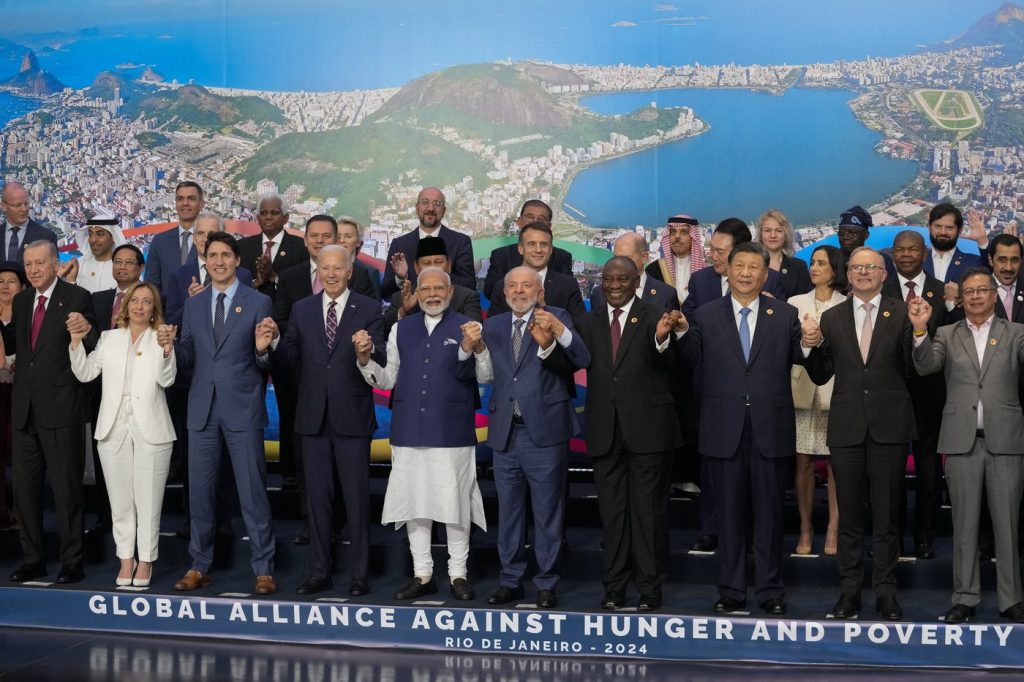BEIJING - Relations between China and countries such as Japan and India are showing signs of improvement, coinciding with Donald Trump's return to the White House, which brings a more unilateralist approach to U.S. foreign policy. This shift in leadership presents an opportunity for China, which has long criticized former President Joe Biden's strategy of forming alliances with "like-minded countries" to counteract China's expanding influence.
With Trump back in office, there are questions surrounding the durability of Biden's legacy. During his administration, Biden reinvigorated a strategic group known as the Quad, consisting of the United States, India, Japan, and Australia. Recently, China's relationships with all three Quad partners, as well as with Britain, have been improving. Wu Xinbo, the dean of the Institute of International Studies at Fudan University in Shanghai, indicates that Trump might inadvertently create opportunities for China’s diplomacy by distancing from traditional U.S. allies.
Despite this, a U.S. National Security Council spokesperson, Brian Hughes, highlighted Trump's record of rallying global opposition against China. Trump had previously embraced strategies like a Free and Open Indo-Pacific, initially introduced by Japan, and supported actions to exclude Chinese companies from telecom networks in the U.S. and allied nations. After being sworn in, Secretary of State Marco Rubio indicated that engaging with Quad countries and countering China’s influence will remain a priority for Trump.
While Beijing is attempting to mend relations with the U.K. and Japan, significant differences persist that could impede progress. For instance, despite a nominal resolution of a bitter border dispute with India last October, recent actions such as China's establishment of new counties in contested areas sparked protests from India.
New leaders in Australia, the U.K., and Japan are expressing an eagerness to enhance ties with China, which is the world's largest manufacturer and a key provider of strategic minerals. Beijing is partially reciprocating this warmth due to its desire for foreign investment to stimulate its economy, which could suffer if Trump proceeds with threats of increased tariffs.
Chinese President Xi Jinping recently communicated with European Council President Antonio Costa, suggesting that both sides could enhance "stability and certainty" amid global turbulence. China and the U.K. have resumed economic discussions after a six-year hiatus, demonstrating China's interest in improving relations with American allies to mitigate the fallout from strained China-U.S. economic ties.
In the U.S., there is a strong bipartisan agreement on the necessity of maintaining a competitive stance against China to uphold America's global leadership. During his confirmation hearing, Rubio labeled China as "the most potent and dangerous near-peer adversary." In contrast to Biden's approach, which has included maintaining and imposing new tariffs on Chinese goods, Trump’s unpredictable rhetoric has at times alienated U.S. allies. His recent comments speculating on the annexation of Greenland and regarding Canada as a potential 51st state have raised concerns.
Experts believe that Trump's return could erode U.S. alliances, presenting opportunities for China to rebuild relationships with countries like Japan and those in Europe that had become increasingly anti-China following the COVID-19 pandemic. However, both Japan and China are keen to establish a stable relationship amidst uncertainty regarding Trump's policies. Notably, for the first time in seven years, a Japanese foreign minister visited Beijing, and Chinese military officials were in Tokyo for defense exchanges after a five-year gap.
In the U.K., Prime Minister Keir Starmer's government is seeking to rebuild ties with China following a decisive election victory. This approach contrasts sharply with former Prime Minister Rishi Sunak's declaration of an end to Britain’s "golden era" of relations with China in 2022. While many European leaders may not welcome Trump’s America-first policies, there is a prevailing sentiment that they prefer to retain their partnership with Washington.
Overall, much will depend on the direction Trump takes in his renewed presidency and how nations globally will respond to his administration's policies.










